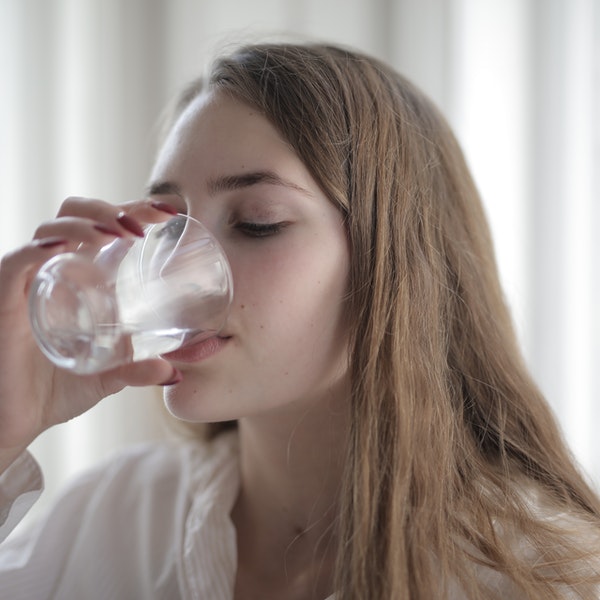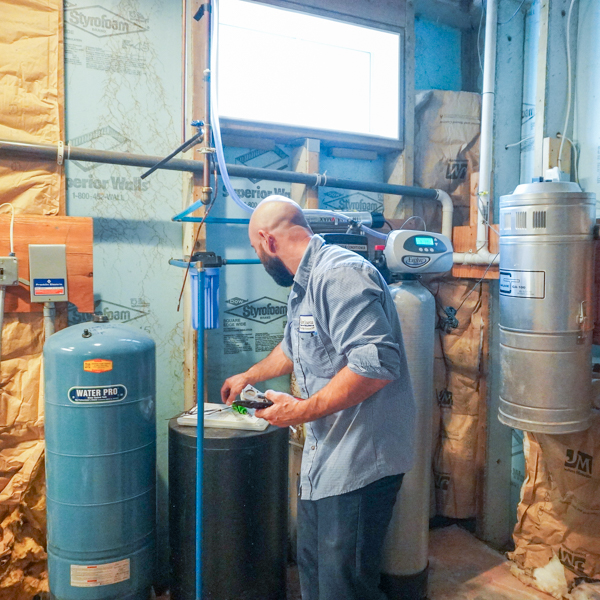How Much Chlorine Is In Your Water?
Many people buy bottled water instead of using what comes from their tap for drinking and cooking, but why? If you ask, most say it’s because the water from the faucet smells and tastes bad. Water treatment facilities use chlorine to disinfect the water, giving it a displeasing odor and taste. How much chlorine is in your tap water, and is it dangerous? Let’s look at the facts.
 Why Do Treatment Plants Use Chlorine?
Why Do Treatment Plants Use Chlorine?
City water suppliers get water from different sources, some of which are contaminated. Not long ago, waterborne diseases like typhoid and dysentery were common in the United States. City water suppliers started using chlorine to disinfect water supplies in the 1900s. The World Health Organization and the Centers for Disease Control say this is one of the most crucial advances in public health.
Disinfecting public water supplies using chlorine and other methods is mandatory for suppliers that source water from rivers, lakes, and streams and have treatment processes in which the water is exposed to the open air.
How Much Chlorine Is In Tap Water?
According to the CDC, Chlorine levels up to 4 milligrams per liter (mg/L or 4 parts per million (ppm) are considered safe in drinking water. At this level, harmful health effects are unlikely to occur. Local, state and federal agencies hold water safety standards to which water suppliers must adhere. However, as we’ve seen, those standards often slip, resulting in contaminated drinking water.
To compound the problem, the water that leaves the treatment facility may be safe but become contaminated when it flows through the system to your home. Municipal water suppliers are required by law to provide consumer confidence reports to their customers; however, it’s wise to test your drinking water regularly for peace of mind. No agencies govern well water, so regular testing is essential to ensure the water is safe to drink.
Chlorine Tap Water Health Effects
To be clear: disinfecting drinking water is necessary to keep people from contracting waterborne diseases. And while the chlorine levels in tap water are considered safe, it doesn’t mean there aren’t health concerns.
While the chlorine level in tap water might not be high enough to harm you, it can react with organic particles to form trihalomethanes. Trihalomethanes have been implicated in several health conditions, including:
- Asthma Symptoms
- Food Allergies
- Congenital Abnormalities
- Bladder, Breast, and Rectal Cancer
Many people turn to bottled water as a safer alternative to tap water; however, much of the bottled water sold comes from municipal water suppliers, which is treated with — you guessed it — chlorine.
How to Make Your Tap Water Safer to Drink
If you’re concerned about chlorine and other contaminants in your tap water, installing a water filter will help. Water filters aren’t 100% effective, but many can remove up to 95% of the chlorine, significantly reducing its potentially harmful effects.
Experts recommend using an activated carbon filter with a reverse osmosis filter to get the best-tasting and safest water.
Activated carbon filters can remove or reduce the following:
- Phosphates
- Chlorine
- Chlorine Byproducts
- Chloride
- Pesticides
- Herbicides
- Lithium
Reverse Osmosis Filters
To get the best-tasting, safest drinking water at home, pair an activated carbon filter with a reverse osmosis filter. Reverse osmosis filters force water through a semipermeable membrane to remove contaminants and impurities. Reverse osmosis filters can remove up to 95% of harmful substances, and some filters add another stage to remove contaminants like lead, mercury, volatile organic compounds and more.

As stated, many reverse osmosis filters include an activated carbon stage. Running tap water through a filter makes it more palatable to drink and removes the odor stemming from chlorine treatment. If you’re concerned about microorganisms in your water, consider a UV sterilization filter.
Get Better Water With Tri-Florida Water Treatment
Tri-Florida Water Treatment is a Department of Environmental Protection Certified water plant operator. We service and sell reverse osmosis filters, drinking water systems, water purification systems, and all types of water treatment systems.
We have over 30 years of experience and are experts in the industry. If you’re in Lakeland or Winter Haven, Florida, contact us at 863-965-1439 to find out how you can get healthier, better-tasting water at home instead of wasting money on bottles.
